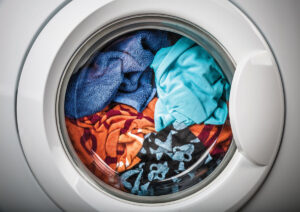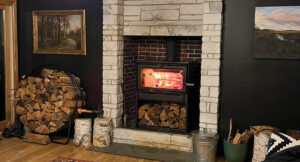If May’s warmer weather has you thinking about the sultry summer months ahead, this could be a great time to consider energy-saving options and making plans to help control your energy costs.
There’s a combination of things you can do yourself, like making slight modifications to your family’s routine that can help identify and achieve opportunities for savings while keeping your home more comfortable throughout the summer cooling season ahead.
HVAC tune-up
When it comes to heating, ventilation and air conditioning equipment, spending a few dollars at the beginning of the season can add up to big savings and help you avoid expensive surprises and system failures.
A qualified service technician with the right skills and equipment will check key components like the compressor and condenser, clean the coils and inspect the ductwork. A technician may also offer advice on how to get the most value out of your programmable thermostat.
According to experts with the
ENERGY STAR program, sealing and insulating ductwork can improve the overall efficiency of your HVAC by as much as 20 percent. Making sure systems are appropriately sized can also improve performance.
Consider replacing systems that are more than 10 years old (or those that no longer keep your home comfortable) with a high-efficiency system that is properly sized and designed to meet your needs.
Gain insights from energy audits
Sometimes it pays to get the big picture, so when it comes to energy efficiency and getting real value for your home improvement dollars, professional advice is a good place to start.
A professionally trained energy advisor can conduct comprehensive assessments and provide recommendations that could help you control energy costs and improve comfort.
Energy audits include examination of heating, cooling and water heating equipment, as well as interior and exterior lighting. Other available services can include inspections and assessments of windows, crawl spaces and other voids for air leaks, which can degrade HVAC performance.
According to the DOE’s Energy Information Administration, a professional energy auditor will review monthly, seasonal and annual energy bills, consider household occupancy patterns, and examine condition, age and use of appliances and other electronics.
An analysis developed from the collected information can help determine a series of recommendations that, if accomplished, can produce savings. Homeowners can then decide which measures fit into their budgets or schedules as they consider improvement projects.
Small changes add savings
When the goal is keeping the house cool and comfortable, remember that any activities that add heat and humidity to your air-conditioned spaces can increase your costs.
Open doors don’t just allow people to come and go. They also provide an instant exchange of cooler inside air for warm, moist air, much the same as the cooling effect you experience when standing in front of an open refrigerator. Consider stocking a cooler with cold drinks and chilled snacks and placing it outdoors to help cut down on household traffic on hot summer days.
When cooking, consider using smaller appliances like a slow cooker – or better yet, take the extra heat from cooking outdoors and fire up the grill.
Ceiling fans operating in air-conditioned space can make you feel about 4 degrees cooler while you are in the room. But the benefits only occur when a room is occupied. Make it a habit to turn off the fan when you leave the room.








